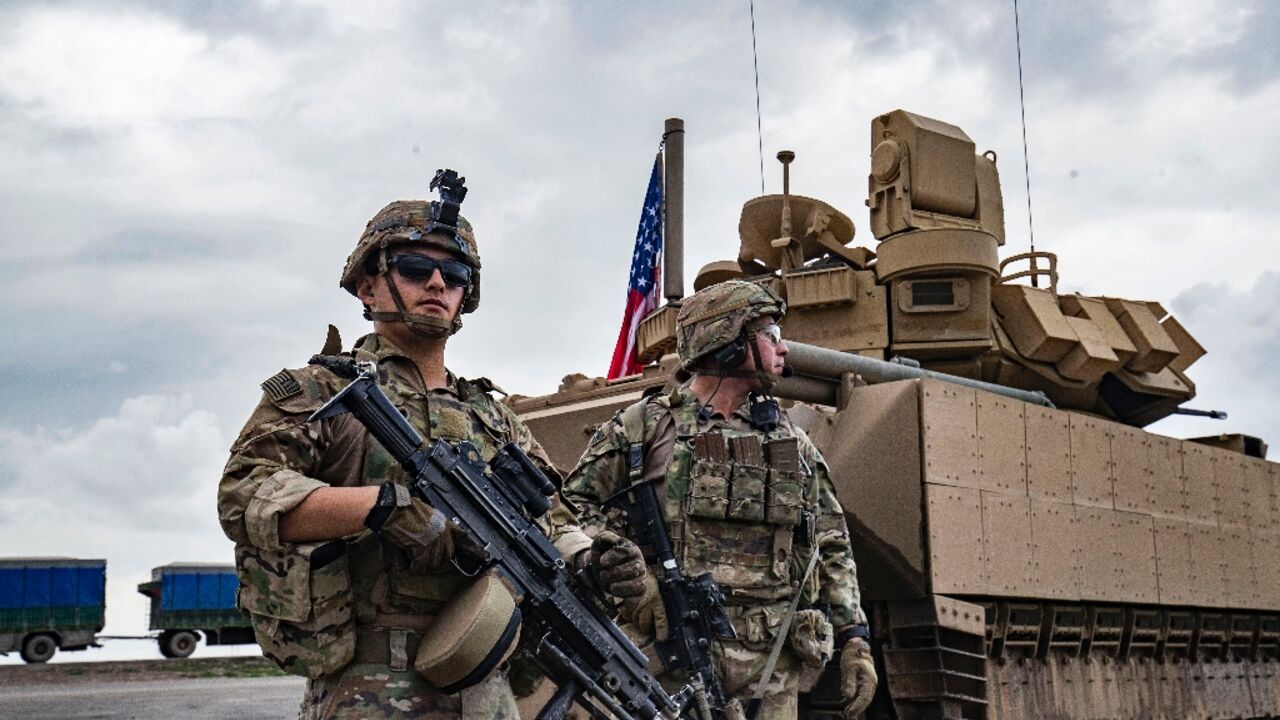US strike in Syria kills planner of IS Europe attacks: military

The US military said Tuesday it had launched a strike in Syria killing a senior Islamic State group militant responsible for planning attacks in Turkey and Europe.
The strike in northwestern Syria on Monday -- the latest by US forces against the jihadist group -- killed senior IS leader Khalid Aydd Ahmad al-Jabouri, US Central Command said.
He was "responsible for planning ISIS attacks" in Turkey and Europe and "developed the leadership structure for ISIS" in Turkey, CENTCOM said in an updated statement later Tuesday, using another acronym for IS.
It did not specify the location of the strike and added that "no civilians were killed or injured".
"Though degraded", the jihadist group, which was ousted from its last territory in Syria in 2019, "remains able to conduct operations within the region with a desire to strike beyond the Middle East," said CENTCOM chief General Michael Kurilla.
His death will "temporarily disrupt the organisation's ability to plot external attacks," CENTCOM said.
IS has claimed a number of deadly attacks in Europe in recent years, including a November 2015 attack in Paris and its suburbs that killed 130 people and another in the French city of Nice in July 2016 that killed 86 people.
The same year, three suicide attacks in Belgium killed more than 30 people. In August 2017, attacks claimed by IS in Barcelona and elsewhere in Spain killed 16 people.
- Drone strike -
In Turkey, IS has claimed responsibility or been blamed for a number of attacks, including a 2017 shooting at an Istanbul nightclub that killed 39 people celebrating the New Year.
In 2018, a Turkish court sentenced six suspected IS militants to life in jail over attacks at Istanbul's Ataturk airport two years earlier that killed 45 people.
The Syrian Observatory for Human Rights, a Britain-based monitor of the more than decade-old conflict in Syria, said Jabouri was killed in a US drone strike in the Idlib region of the northwest, an area run by jihadists.
It said he was killed while speaking on a telephone as he walked in the open near where he was staying.
The Observatory said that Jabouri, an Iraqi who was posing as a Syrian, had sought refuge in the area some 10 days ago.
Damien Ferre, founder of the Jihad Analytics group, said Jabouri's real name was Khalil Abdullah al-Khulaif and that he had operated from the Deir Ezzor region of eastern Syria.
"As always, he will be replaced," Ferre told AFP, but "it's still a blow to the group."
CENTCOM chief Kurilla said that despite no longer controlling any territory in either Syria or Iraq, IS "continues to represent a threat to the region and beyond".
"CENTCOM remains committed to the enduring defeat" of IS, the statement said.
- 'Intent to strike' -
Some 900 US troops remain in Syria, most in the Kurdish-administered northeast, as part of a US-led coalition battling remnants of IS, who remain active in both Syria and neighbouring Iraq, operating out of hideouts in desert and mountain areas.
In October 2019, Washington announced it had killed IS leader Abu Bakr al-Baghdadi in an operation in northwestern Syria.
His two successors have also been killed: the first in a US operation in northwestern Syria, the second in an operation by former Syrian rebels in the country's south.
In February this year, a US helicopter raid killed IS commander Hamza al-Homsi, who oversaw the jihadists' operations in northeastern Syria. Four US military personnel were wounded in the operation.
"Nowhere is a 'safe zone' for IS leaders in Syria -- apart from the Badia desert area in Homs province," Jihad Analytics's Ferre said.
Colin Clarke, head of research at the Soufan group, an American think tank on international security, said IS "has a clear succession plan and has continued to elevate other members to important positions".
The group "still very much has the intent to strike Europe and to attack the West, but it's struggling somewhat with the capability part of that equation", he told AFP.
Inside Syria, IS has carried out a spate of deadly attacks this year, many of them opportunistic.
Impoverished Syrians foraging for desert truffles to sell have been a particular target for the jihadists while the delicacy has been in season in recent months, with dozens killed in ambushes.







